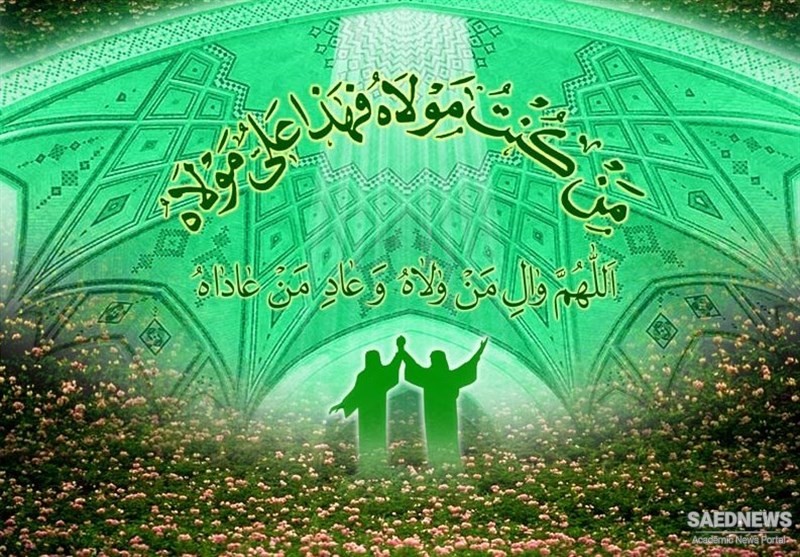In the course of Islamic history, political power did become separated from the spiritual Imamate, and the political dimension of religion was separated from its spiritual dimension. If Islamic society is not headed by a worthy, just, God fearing person, one unsullied by moral impurity, whose deeds and words serve as a model for people; if, on the contrary, the ruler of society himself violates the law and turns his back on the principles of justice there will be no environment capable of receiving justice, and it will not be possible neither for virtue and piety to grow and ascend, nor for the aim of Islamic government to be accomplished, which is none other than orienting men to the Supreme Principle and creating a sound environment for the dissemination of spiritual values and the implementation of a law based on divine revelation. The moral conduct of the ruler and the role of government have so profound and powerful an effect on society that 'Ali, the Commander of the Faithful, peace be upon him, regarded it as more influential than the educative role of the father within the household. He thus said: "With respect to their morals, people resemble their rulers more than they resemble their fathers."
Since there is a particular connection and affinity between the aims of a given government and the attributes and characteristics of its leader, attaining the ideals of Islamic government is dependent on the existence of a leader in whom are crystallized the special qualities of a perfected human being. In addition, the need of a society moving forward toward its own perfection for leadership and governance is a natural and innate need, and in just the same way that Islam has made provision for the individual and collective needs of man, material and moral, by codifying and ordering a coherent system of law, it must also pay heed to the natural need for leadership in a fashion that accords with man's essential disposition. God has provided every existent being with all the tools and instruments it needs to transcend the limitations of weakness and lack and advance toward its own perfection. Is it then possible that man who is also nurtured in the embrace of nature would somehow be excepted from the operation of this inviolable rule and be deprived of the means of spiritual ascent?
Could it be said that a Creator Who has lavished generosity on man for the sake of his bodily development might deprive him of the most basic means needed for his spiritual elevation, that He might grudge him this bounty? At the time of the death of the Messenger of God, the Islamic nation had not reached the cultural or intellectual level that would have permitted it do continue its development toward perfection without guardianship and oversight. The program that Islam had established for the development and elevation of man would have remained soulless and incomplete unless the principle of Imamate had been joined to it; Islam would have been unable to play its precious role in the liberation of man and the blossoming of his talents.
Fundamental Islamic texts proclaim that if the principle of Imamate is subtracted from Islam, the spirit of the laws of Islam and the progressive, monotheistic society based on them would be lost; nothing would remain but a lifeless form. The Prophet of Islam, peace and blessings be upon him and his family, said: "Whosoever dies without recognizing the Imam of his time dies the death of the Jahiliyyah." The reason for this is that during the Jahiliyyah pre-Islamic era of ignorance the people were polytheists; they knew nothing of either monotheism or of prophethood. This categorical declaration by the Prophet, peace and blessings be upon him and his family, shows the importance that he assigned to the Imamate, to the degree that if someone fails to place his spiritual life beneath the protective cover of a perfected ruler he is equivalent to one whose whole life was spent in the Jahiliyyah and then went unredeemed to his death.


 Shia Imamate: the Imam and the Leader
Shia Imamate: the Imam and the Leader














































